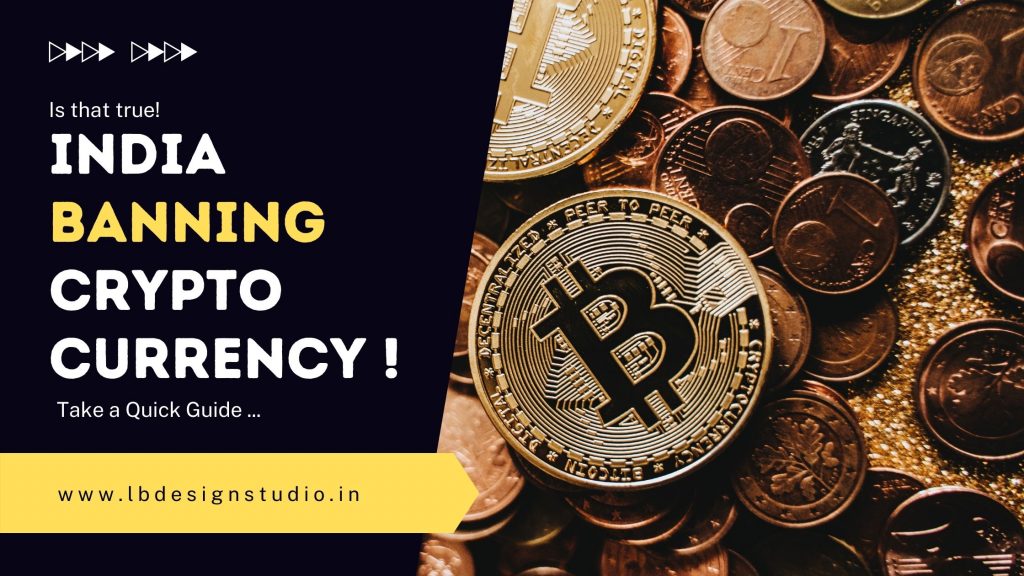
India Banning Cryptocurrency: India is among the most rapidly growing markets worldwide for trading in cryptocurrency however, the capability of trading Bitcoin and its counterparts without identifying yourself and with anonymity is a threat to the country’s restrictions on the ability to convert its currency, which is the rupee. The central bank has made it clear that it would like to ban all cryptocurrency that is private and is creating an officially recognized digital currency. However, the government is open to exceptions in order to encourage block chain technology. With these competing goals the Modi’s government is working hard to pass legislation before the final session of parliament in the year.
How big is crypto India?
It’s among the biggest in the region and is growing quickly. A Oct. report by Chain lysis which is a firm that analyzes crypto transactions has found that the Indian market was growing by 641% in the time between July 2020 and June 2021. Overall the central and southern regions of Asia was the fourth largest crypto market that was studied in the study, with over $572.5 billion in value during the time period, or 14% of the global transaction value. Transfers of over $10 million accounted for the majority of all transactions made through India-based accounts during the time, as opposed to 28 percent in Pakistan and 29 percent for Vietnam. It suggests that India is a more advanced Indian market. However, India is home to an extremely youthful and tech-savvy populace was second only to Vietnam in the growth of cryptocurrency adoption among individuals across the region.
New rules set by Indian Government ?
India has had a tense relation with cryptocurrency that exist in a gray space. In the year 2018, India effectively banned crypto transactions, however in the end, the Supreme Court struck down the restriction in March 2020. The demand for more stringent rules has been growing since then due to fears that an unregulated system could attract more domestic households’ savings into volatile assets which could leave the average saver susceptible to a collapse. News that the government was preparing a bill appeared to spark a Nov. 24 sell-off on exchanges that are very popular among Indian investors.
The Reserve Bank of India declares that they pose grave risks to the country’s financial and macroeconomic stability. The rupee of India is not fully convertible, giving the regulator control and insight over who is able to access the markets of the country. They are, by their nature, designed to be a free-trader and anonymous, which means that they are unable to provide authorities with control and access for tax-free transactions. Problems like the financing of terrorism and money laundering are also being discussed.
What kind of bill is it likely to include?
That’s unclear. A short description that is posted on the site of the Parliament says that it “seeks to prohibit all private cryptocurrencies in India, however, it allows for certain exceptions to promote the underlying technology of cryptocurrency and its uses.” Bloomberg News has revealed that the proposal of the government may consider cryptocurrencies to be an asset of financial value and set the minimum amount to invest in it, but ban the use of cryptocurrencies as legal currency. “We want to make sure there is a window available for all kinds of experiments which will have to take place in the crypto world,” Finance Minister Nirmala Sitharaman said. “It isn’t as if we’re looking inwards to declare that we’re not going to see any of this. It will be a highly precise place.”
When will everything back to normal ?
If it wishes for the bill to be passed in the coming year, it will need to approve the draft and pass its way through parliament before December. 23rd, the day that the parliament’s winter session is scheduled to end. In addition, Modi’s administration will help the RBI to create an officially recognized digital currency similar to what other central banks across the world have been doing for a while, particularly China. The timeline for this seems to be a lot further out and is likely to be rolled out in stages.
Isn’t India operate primarily with cash?
Yes it is. It’s true. Modi Government in 2016 abruptly removed the high value bills out of circulation in an effort to tackle counterfeiting, corruption and push the country towards digital. This helped bring India’s payment platform Paytm to the forefront. But cash is still trending and 89% of all payments conducted in the fiat currency by 2020, compared to 100% in 2010 according to an McKinsey report. (And the Paytm stock exchange, which was a rumor-fest, was an terrible debut on November. 21.) However, digital retail payments have grown fivefold in the last two years, driven by the pandemic. This is the reason why it is one of the most appealing locations for venture capitalists.



